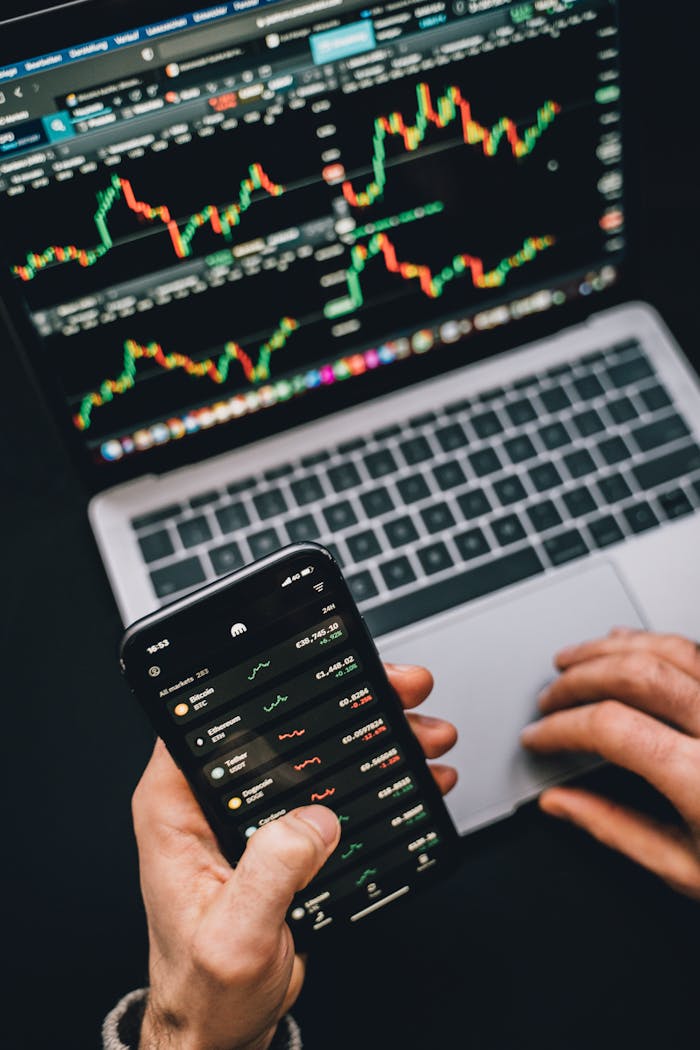When exploring financial markets, traders often find themselves drawn to both commodities and forex. Each market offers unique opportunities, with forex focusing on the dynamic world of currency trading and commodities providing access to tangible assets like gold, oil, and agricultural products. While many Forex trading brokers offer access to both markets, their approach to each is often tailored to meet the distinct needs of traders. Understanding how brokers differentiate their offerings can help you decide which market aligns best with your trading goals and strategy.
Key Differences Between Commodities and Forex
Forex and commodities trading differ in several fundamental ways, including the nature of the assets, market dynamics, and trading strategies.
- Nature of Assets:
- Forex involves trading currency pairs like EUR/USD, where traders speculate on the value of one currency relative to another.
- Commodities involve tangible assets, such as metals (gold, silver), energy (oil, natural gas), or agricultural products (wheat, coffee).
- Market Drivers:
- Forex markets are influenced by macroeconomic factors like interest rates, inflation, and geopolitical stability.
- Commodities are driven by supply and demand factors, weather patterns, and geopolitical events impacting resource availability.
- Volatility:
- Forex markets are typically more stable, with movements largely influenced by economic data and central bank policies.
- Commodities can experience sharp price swings due to sudden supply shocks or geopolitical tensions.
How Brokers Tailor Their Offerings
1. Platforms and Tools
Brokers often integrate features specific to each market into their trading platforms. For forex, this includes tools like currency correlation charts, economic calendars, and pip calculators. For commodities, brokers may provide supply/demand analysis, historical price data, and indicators specific to the asset, such as oil inventory reports.
Advanced platforms like MetaTrader 4 (MT4) or MetaTrader 5 (MT5) are versatile, allowing traders to access both markets with specialized tools for each. Some brokers also develop proprietary platforms with enhanced features tailored for commodity or forex trading.
2. Leverage and Margin
Leverage ratios often differ between forex and commodities due to the inherent risks and regulatory requirements. Forex typically offers higher leverage, such as 1:100 or 1:500, allowing traders to control larger positions with smaller capital. Commodities, being more volatile, usually have stricter leverage limits to reduce exposure. Brokers adjust margin requirements to reflect these differences.
3. Costs and Spreads
Forex trading often features tighter spreads, particularly for major currency pairs, due to the high liquidity of the market. Commodities, on the other hand, may have wider spreads, especially for less liquid assets like agricultural products. Brokers structure their fees and commissions accordingly, ensuring transparency in cost structures for both markets.
4. Education and Resources
Brokers catering to forex traders often provide tutorials on currency trading basics, interest rate impacts, and technical analysis strategies. For commodities, brokers may focus on supply chain dynamics, geopolitical influences, and commodity-specific indicators. Tailored educational content helps traders understand the nuances of each market.
5. Risk Management Tools
Risk management tools like stop-loss orders, trailing stops, and negative balance protection are standard for both markets. However, brokers may emphasize different strategies depending on the market. For example, in forex, tools might focus on mitigating risks from currency volatility, while in commodities, the focus might be on managing exposure to seasonal supply changes or geopolitical disruptions.
Choosing the Right Market and Broker
When deciding between commodities and forex, consider your trading style, risk tolerance, and market knowledge. Forex might suit traders who prefer high liquidity and a focus on macroeconomic factors, while commodities attract those interested in tangible assets and supply/demand dynamics.
A reliable Forex trading broker that offers access to both markets ensures you can transition seamlessly between the two. Look for brokers with transparent pricing, a wide range of instruments, and robust platforms equipped for multi-market trading.
Commodities and forex each offer unique trading opportunities, and brokers play a vital role in differentiating their offerings to meet the needs of traders in both markets. Whether you’re drawn to the fast-paced world of currencies or the tangible appeal of gold and oil, the right broker can provide the tools, resources, and support needed to succeed. By understanding these distinctions, you can align your trading goals with the market that best suits your strategy and risk appetite, all while benefiting from the expertise of a versatile broker.
